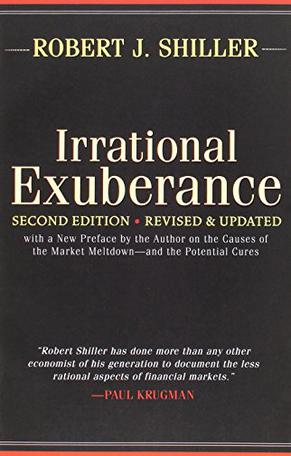欢迎来到相识电子书!
标签:Yale
-
Listening to Music (with CD)
This chronological text, which covers all the major periods in music history, offers instructors and students particular help in developing listening skills in three ways: First, a free "Introduction to Listening" CD comes packaged with each student copy of the text. This CD plays all of the music discussed in the music fundamentals chapters of the text and provides an audio guide called "Instruments of the Orchestra." The guide presents the instruments and then tests students' ability to recognize them by themselves and in various combinations. Second, every chapter in Wright's text offers unique listening exercises. It is the only music appreciation book to have listening exercises built into and fully integrated with the text. Third, interactive listening guides and listening quizzes for all of the music in the text are available free via download from the Schirmer website. More than any other music appreciation text, LISTENING TO MUSIC challenges students to develop and refine their listening skills. Wright covers traditional Western music from medieval to modern, and integrates non-Western music throughout the text where appropriate, drawing comparisons between music of Western and other cultures. Concluding chapters discuss popular music and its impact on the world of music. Musical examples from each historical period are discussed within their social context, giving students a broad sense not only of a piece's composition, but also of its historical and cultural meaning. -
耶鲁的青春岁月
《耶鲁的青春岁月:21名耶鲁大学中国本科生访谈录》内容简介:希望能够通过采访,真实地记录和反映这些学子的成长经历与背景,包括他们的家庭、中学教育;他们申请美国大学,特别是申请耶鲁大学的过程;他们对自身成长经历的评价;他们来美国后如何经历语言、文化以及从中学到大学的过渡;他们在耶鲁的生活、学习和成长;他们毕业找工作的以及他们对未来的规划与展望。希望通过介绍他们的亲身经历,为那些立志出国求学的中学生提供一些实际的经验与指导;为那些希望把自己的孩子送到国外大学深造的家长提供一些感性认识,还希望能为那些正在思考中国的中学和大学教育体制改革的人们提供一些国外中学、大学教育的实例与比较。 -
Irrational Exuberance
《非理性繁荣》书名取自美国联邦准备理事会理事主席葛林史班 1996 年底在华府希尔顿饭店演讲中,谈到当时美国金融资产价格泡沫时所引用的一句名言。从那时起,许多学者、专家都注意到美国股市因投机风气过盛而引发的投资泡沫现象。 Book Description In this timely and prescient update of his celebrated 2000 bestseller, Robert Shiller returns to the topic that gained him international fame: market volatility. Having predicted the stock market collapse that began just one month after the first edition was published, he now expands the book to cover other markets that have become volatile, particularly the recently red-hot housing market. He includes a full chapter on domestic and international housing prices in historical perspective. Shiller amasses impressive evidence to support his argument that the recent housing market boom bears many similarities to the stock market bubble of the late 1990s, and may eventually be followed by declining home prices for years to come. After stocks plummeted when the bubble burst in 2000, investors moved their money into housing. This precipitated the inflated real estate prices not only in America but around the world, Shiller maintains. Hence, irrational exuberance did not disappear—it merely reappeared in other settings. Building on the original edition, Shiller draws out the psychological origins of volatility in financial markets, this time folding real estate into his analysis. He broadens the evidence that investing in capital markets of all kinds in the modern free-market economy is inherently unstable—subject to the profoundly human influences captured in Alan Greenspan’s now-famous phrase, “irrational exuberance.” As was true of its predecessor, the second edition of Irrational Exuberance is destined to be widely read, discussed, and debated. Amazon.com CNBC, day trading, the Motley Fool, Silicon Investor--not since the 1920s has there been such an intense fascination with the U.S. stock market. For an increasing number of Americans, logging on to Yahoo! Finance is a habit more precious than that morning cup of joe (as thousands of SBUX and YHOO shareholders know too well). Yet while the market continues to go higher, many of us can't get Alan Greenspan's famous line out of our heads. In Irrational Exuberance, Yale economics professor Robert J. Shiller examines this public fascination with stocks and sees a combination of factors that have driven stocks higher, including the rise of the Internet, 401(k) plans, increased coverage by the popular media of financial news, overly optimistic cheerleading by analysts and other pundits, the decline of inflation, and the rise of the mutual fund industry. He writes: "Perceived long-term risk is down.... Emotions and heightened attention to the market create a desire to get into the game. Such is irrational exuberance today in the United States." By history's yardstick, Shiller believes this market is grossly overvalued, and the factors that have conspired to create and amplify this event--the baby-boom effect, the public infatuation with the Internet, and media interest--will most certainly abate. He fears that too many individuals and institutions have come to view stocks as their only investment vehicle, and that investors should consider looking beyond stocks as a way to diversify and hedge against the inevitable downturn. This is a serious and well-researched book that should read like a Stephen King novel to anyone who has staked his or her future on the market's continued success. --Harry C. Edwards From The New Yorker During the past decade, he has emerged as a leader in the new field of "behavioral finance" which seeks to apply lessons learned from other academic disciplines, particularly psychology to economics. Irrational Exuberance is not just a prophecy of doom. Encompassing history, sociology, and biology, as well as psychology and economics, it is a serious attempt to explain how speculative bubbles come about and how they sustain themselves. John Cassidy From Library Journal Taking his book's title and thesis from Alan Greenspan's 1996 description of investors, Shiller (economics, Yale Univ.) studies the current booming U.S. stock market in historical terms. His research into past U.S. and international markets indicates that during every speculative bubble there was always widespread consensus that high valuations were justified by each market's special circumstances. Every large market correction seemed to result from popular consensus rather than specific events or news. Shiller says that past bull and bear markets, though often based initially on sound fundamental reasoning, fed upon themselves to go beyond what the facts justified. He challenges the efficient market theory, demonstrating that markets cannot be explained historically by the movement of company earnings or dividends. He concludes that the current U.S. stock market is a speculative bubble awaiting correction. While the book certainly belongs in all academic business collections, public libraries should also purchase it as a counterweight to the plethora of get-rich-quick investment guides. -Lawrence R. Maxted, Gannon Univ., Erie, PA From The New York Times Book Review No one has explored the strange behavior of the American investor in the 1990's with more authority, or better timing, than Robert J. Shiller. Louis Uchitelle About Author Robert J. Shiller is the Stanley B. Resor Professor of Economics at Yale University. He is the recipient of the 2000 Commonfund Prize, awarded for Best Contribution to Endowment Management Research, for Irrational Exuberance. He is also the author of Market Volatility and Macro Markets, which won the 1996 Paul A. Samuelson Award. Book Dimension : length: (cm)23.3 width:(cm)15.4 -
Psychology
Peter Gray's "Psychology" has become a favorite of instructors with its exploration of psychology's major theories, and the evidence that supports and refutes these theories. Each edition incorporates an exceptional amount of contemporary research, encouraging students to probe for the purposes and biological origins of behavior--the "whys" and "hows" of human psychology. Peter Gray's engaging, readable writing style makes the science of psychology, and its interactions with biology, accessible and meaningful. With the new edition, Gray has taken care to ensure that his comprehensive, thought-provoking, and contemporary coverage is well-attuned to the needs and interests of today's students. -
Psychology
Gray's comprehensive and thought-provoking introductory text explores Psychology's major theories, and the evidence that supports and refutes them. Each edition incorporates an exceptional amount of contemporary research, encouraging students to probe for the purposes and biological origins of behavior - the 'whys' and 'hows' of Human Psychology. An engaging, readable writing style and updated pedagogy make the science of Psychology, and its interactions with Biology, accessible and meaningful. -
耶鲁女生
本书中这四五十篇文章,是作者从三年前,在学习与工作之余断断续续地写的。现在回过头来看这些文字,感到又亲切又陌生。文章中间所提到的人和事有的已经离作者很遥远,而有的故事却还与作者的生活息息相关。 回过头来看这本书里写到的人和事,要感谢多维新闻网的负责人何频先生,他对作者的写作投注无限的信心,在相当长一段时间中软硬兼施地鼓励其每星期一篇,以“专稿”的名义,在多维网站上重点推出。在作者父亲对其文章大泼冷水之际,何频先生总是坚定地支持予以发表。作者体会,这并不意味着他认为他的文笔有多么好,而是他期望更多地能够通过他的文章,使中文读者了解在美国长大的年轻人的动态和看法。作者的文章是否有代表性?其实未必。去年秋天,作者因为既要承担全盘管理公司的责任,又要力拼报考法学院,超负荷运转的日子里,作者不得已中断了专稿的写作。好在现在在美国用中文写作的年轻人已经越来越多,担任某种“代表”的压力也就可以渐轻。 作者父亲对他的文章挑过很多刺。尽管作者曾经对他的推敲大表不满,但是后来有时也暗自承认他的指点对他还是非常有益的。试想,每个星期只有与父母通两三次电话的时候才能够敞开了说中文,而平时从早上醒来第一个念头到深夜睡觉最后一个梦境,都得用英语(偶尔还得用德语),根本不可能有机会来练习、改进中文,在写中文文章时,词不达意和提笔忘字就成了绝对难免的事——当然这不能用来作作者写作进步甚慢的借口。而对中文读者的需求和趣味的了解,作者的父母比作者有更大的发言权。 -
Foundations of Financial Markets and Institutions
A comprehensive exploration of the world's financial markets and institutions. Introduction; Financial Institutions, Financial Intermediaries, and Asset Management Firms; Depository Institutions: Activities and Characteristics; The U.S. Federal Reserve and the Creation of Money; Monetary Policy in the United States; Insurance Companies; Investment Companies and Exchange-Traded Funds; Pension Funds; Properties and Pricing of Financial Assets; The Level and Structure of Interest Rates; The Term Structure of Interest Rates; Risk/Return and Asset Pricing Models; Primary Markets and the Underwriting of Securities; Secondary Markets; Treasury and Agency Securities Markets; Municipal Securities Markets; Markets for Common Stock: The Basic Characteristics; Markets for Common Stock: Structure and Organization; Markets for Corporate Senior Instruments: I; Markets for Corporate Senior Instruments: II; The Markets for Bank Obligations; The Residential Mortgage Market; Residential Mortgage-Backed Securities Market; Market for Commercial Mortgage Loans and Commercial Mortgage-Backed Securities; Market for Asset-Backed Securities; Financial Futures Markets; Options Markets; Pricing of Futures and Options Contracts; The Applications of Futures and Options Contracts; OTC Interest Rate Derivatives: Forward Rate Agreements, Swaps, Caps, and Floors; Market for Credit Risk Transfer Vehicles: Credit Derivatives and Collateralized Debt Obligations; The Market for Foreign Exchange and Risk Control Instruments MARKET : Foundations of Financial Markets and Institutions , offers a comprehensive exploration of the revolutionary developments occurring in the world's financial markets and institutions –i.e., innovation, globalization, and deregulation–with a focus on the actual practices of financial institutions, investors, and financial instruments. -
The Norton Psychology Reader
If you've ever wondered about the mind and behavior, the Norton Psychology Reader is the perfect place to start. From the biological basis of emotion to the psychological basis of culture, from the nature of nurture to the nature of intelligence, with selections by leading scientists with a knack for writing—including Steven Pinker, Joseph Ledoux, Antonio Damasio, Oliver Sacks, and Robert Sapolsky—and top-notch journalists with an uncanny sense for psychology—including Natalie Angier, Daniel Goleman, and Sylvia Nasar—the Norton Psychology Reader presents the best that psychology has to offer. Edited by noted New York University psychologist Gary Marcus, the Norton Psychology Reader is an unparalleled guided tour through the modern science of the human mind and a perfect companion to any introductory psychology course, filled with insights completely accessible to the interested lay reader.
热门标签
下载排行榜
- 1 梦的解析:最佳译本
- 2 李鸿章全传
- 3 淡定的智慧
- 4 心理操控术
- 5 哈佛口才课
- 6 俗世奇人
- 7 日瓦戈医生
- 8 笑死你的逻辑学
- 9 历史老师没教过的历史
- 10 1分钟和陌生人成为朋友









